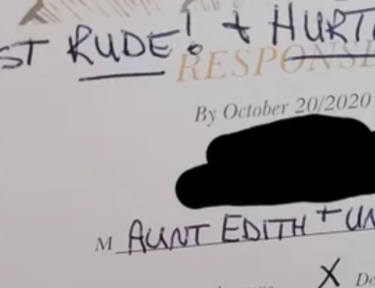Here’s What the Queen Did So Her Great-Grandaughter Could Remain 4th in Line for the Throne
While America’s entire creation was about separating from Britain and making a government without a hereditary ruler, you’d never know it from the excitement here in the states over the current British royal family.
And with the announcement of a new impending royal birth from the Duke and Duchess of Cambridge, that excitement is starting to reach a fever pitch! Which is probably why we find it so fascinating to learn that, before 2013, if Will and Kate’s third child were a boy, he would jump over little Princess Charlotte to become fourth-in-line to the throne!
Yes, seriously; it took the British government until well into the twenty-first century to get rid of what is called “male primogeniture,” a tradition where all royal men take precedence over their female siblings, no matter how much older their sisters might be.
That’s why Prince Charles is first-in-line and his sister, Princess Anne, isn’t— she might be the oldest child of Queen Elizabeth II, but Charles is the oldest son.
Thankfully, England’s Parliament finally decided to fix this ancient and sexist rule, and passed the Succession to the Crown Act 2013. The Queen gave what’s called her “Royal Assent” to the act on April 25, 2013, and the future of the monarchy was forever changed.
The act became official once all of the Commonwealth countries approved it, which they did only two months before Princess Charlotte’s birth. Just in the nick of time!
According to the BBC, then-Deputy Prime Minister had this to say about the change:
The act reflects this Government’s emphasis on equality by removing centuries of discrimination on both religious and gender grounds.
The act puts in place succession laws that are fit for the 21st century and for a modern constitutional monarchy.
It was about time, don’t you think? And we’re sure Princess Charlotte would wholeheartedly agree— if, you know, she wasn’t too busy being a two-year-old.
But what’s this about “discrimination on religious grounds”, you ask? And why are Prince Charles, Prince William, and Prince George still in their same spots when the Queen has an older daughter and older grandchildren?
Well, because the act not only addresses the rule of gendered order of succession, but other centuries-old rules that made life even more complicated for those lucky enough – or unlucky enough, depending on how you look at it – to be born into the royal family.
Those ancient rules required, among other things, that the Queen approve the marriage of everybody in the line, no matter how distant or unlikely to ascend the throne, and prohibited any heirs from marrying somebody who was Roman Catholic.
Yup, the British throne has a religious requirement! While anybody hoping to become king or queen one day still has to be a member of the Church of England, they can now follow their hearts and marry outside the official Church— even to a Catholic.
And now, if they’re farther away from the throne than sixth-in-line, they don’t even need the Queen’s permission to do it— which meant that once Charlotte was born and Princess Beatrice dropped from sixth to seventh, Prince Charles’ niece was off the hook!
Princess Beatrice, her sister, and the queen’s only daughter, Princess Anne, all stay in their same positions because the new law won’t be applied retrospectively. Only new members of the family will be affected by this new gender equality.
And honestly, we’re sure Princess Anne is probably a little relieved by that fact. Just imagine jumping from the safety of twelfth-in-line to the guaranteed-to-rule position of FIRST overnight! The prospect’s a little stressful, no?
Got all that, or still a little confused? Or do you find yourself wondering how these changes affect everybody else in the big, tangled, complicated web of the British royal family tree?
This video below from Town and Country might help! Not only does it outline exactly who ranks where, it tell us everybody in line for king-or-queendom from the first to the third and all the way to the twentieth. Boy, those Brits like a back-up plan!
What do you think of this change to tradition? How long overdue do you think it was? What do you think the other members of the family are feeling about the change?




